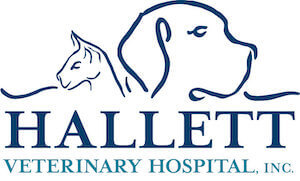Deciding when it's time and what to expect during the procedure
How do I know it's time?
Euthanasia is the last act of kindness you can provide for your pet. Our doctors and technicians will work with you to help you determine when euthanasia is the correct option. Here is a list of some things to consider when deciding if it is time for euthanasia:
- Is your pet still greeting you and happy to see you?
- Is he/she eating and drinking comfortably, normally, and still finding pleasure in it?
- Can your pet sleep comfortably?
- Is it difficult to control your dog or cat's pain?
- Can your pet still play with you and do all the things they love?
Deciding to euthanize your pet can be a difficult and very personal decision that may take some time.
What to expect
When you arrive for your appointment, we will ask you to sign a euthanasia form and pay your bill. The form gives us permission to perform the euthanasia procedure, states that your pet has not bitten anyone in the last 10 days to comply with public health rabies control laws, and confirms your pet's aftercare options. You always have the option to pay your bill over the phone prior to your appointment as well.
We will take you and your pet to a private, comfortable, quiet room where we will complete all the paperwork. You can spend as much time with your pet as you'd like before the doctor comes in. Some people, especially children, are not comfortable being present for the procedure and this is perfectly fine. Your presence is not a requirement, but an option. You may step out of the room at anytime, or transfer your pet to the caring hands of our staff for the procedure. For an additional fee, and depending on our schedule, a doctor and technician may come to your house and perform the euthanasia in the comfort of your home.
The euthanasia procedure
We may need to place an IV catheter to ensure that the procedure goes smoothly with a stable entry to the vein. In that case, we will take your pet to our treatment room to place the catheter, then return him/her to you. There will be no injection done unless you and the doctor discuss otherwise.
Euthanasia is an overdose of anesthetic. Your pet will lose consciousness within 30 seconds, so he/she will not be aware of what's happening. Your pet may take a breath, have random movement, urinate, or defecate. These are all reflexes that are normal. Your pet's eyes will not close because the normal relaxed position for eyes is to be open. Everything should be complete within 3-5 minutes after the injection.
Aftercare
You are welcome to spend as much time with your pet as you'd like after the procedure. The room is at your disposal for the duration of your stay and will remain private.
Cremation or home burial are the two options you have for aftercare. If you choose to bury your pet at home, we will send you home with two heavy duty bags to place your pet's body in. Pets should be buried six feet deep to prevent scavenging by wild animals.
We work with Pagenkopf's Family Pet Cremation to handle your pet's remains, if you decide on cremation. They provide the following options for you:
- Communal cremation: cremains are commingled with other pets and are NOT returned to you
- Private cremation: your pet will be placed in the cremation chamber by itself. No other pets are cremated at this time and those ashes are returned to you. Cremains are returned to the hospital and we will give you a call when those are ready for pick up.
If you are considering euthanasia, feel free to call and discuss aftercare options and get price quotes to be fully prepared for this difficult decision ahead.
Support in your time of need
Our doctors and technicians are always available to talk you through this difficult decision and are available in person, via email, or phone. Listed below are other options available for support in your time of need.
Pet loss and bereavement
Losing a pet can be one of the hardest experiences to go through. Wisconsin Veterinary Referral Center has a veterinary social worker, Neil Staplin, who is available by appointment to help pet owners navigate end of life for a beloved friend.
Cornell University College of Veterinary Medicine
Pet Loss Support Hotline 607-218-7457
6:00pm-9:00pm Eastern Time; Mondays and Wednesdays
This hotline is staffed by volunteer veterinary students who have undergone extensive training with professional grief counselors. They understand that every loss in unique and they are trained to acknowledge the normal grieving process that callers are experiencing.
